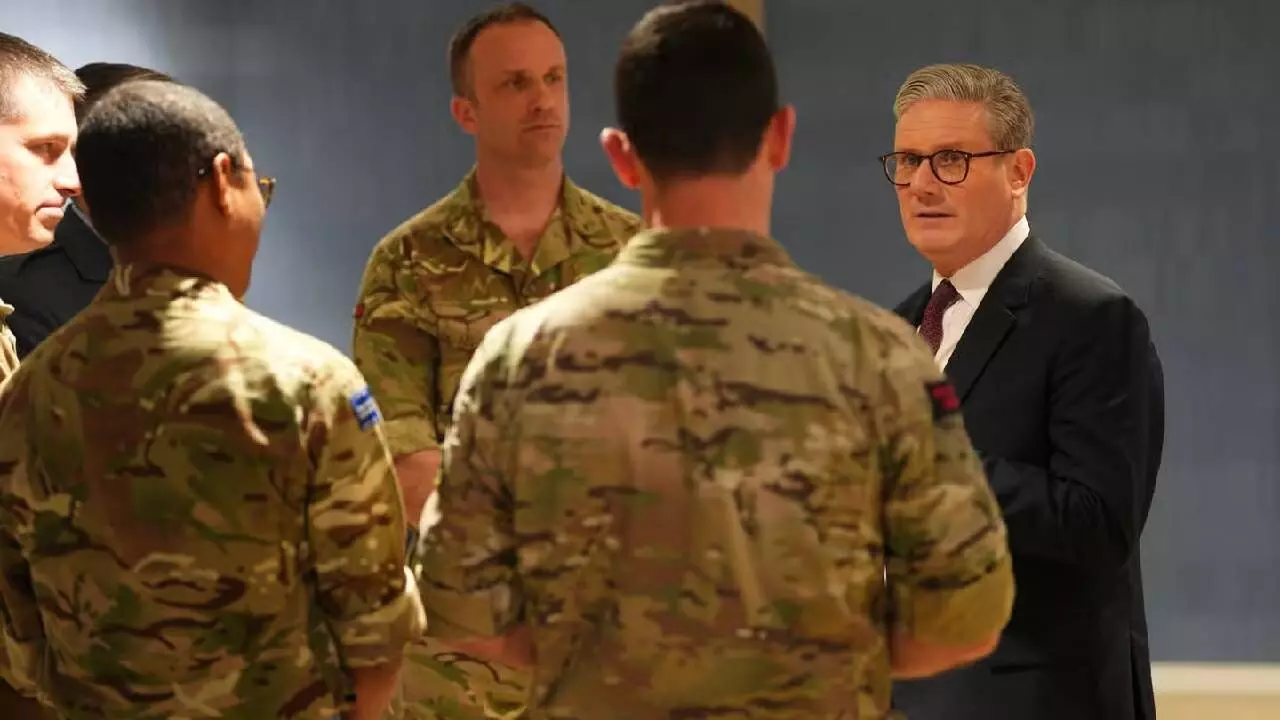UK Signals Bigger Nuclear Role in Europe as US Commitment Wavers
UK plans to expand its nuclear role in NATO amid doubts over US commitment, as PM Keir Starmer pushes for a stronger European defense posture.
UK Signals Bigger Nuclear Role in Europe as US Commitment Wavers

With the global security landscape growing more uncertain, the UK is preparing to take on a greater share of NATO’s nuclear responsibilities — a bold move driven by concerns over America’s waning commitment to European defense.
Prime Minister Keir Starmer has made it clear: Britain must be “war-ready” to counter Russian aggression. As part of this vision, the UK is exploring advanced nuclear capabilities — including fighter jets capable of delivering nuclear weapons, according to a senior official with knowledge of the discussions.
This effort would supplement Britain’s ongoing £15 billion Trident renewal program, which includes updated nuclear warheads and the construction of up to 12 new submarines under the AUKUS pact with the US and Australia. The message is unmistakable: the UK is stepping up to lead Europe’s nuclear defense efforts, especially as questions grow over whether the US — under President Donald Trump — will continue playing its traditional role.
“This is about reducing the risk of a US pullback,” says William Alberque, a nuclear policy expert at the Pacific Forum in Berlin. “It’s Europe preparing to defend itself.”
A newly released Strategic Defence Review lays the groundwork for this shift. Among its key recommendations: the UK should begin formal talks with Washington about sharing more of NATO’s nuclear deterrent responsibilities. The document outlines a broader push to transform Britain’s military into a force capable of responding to full-scale conflict.
Europe Rethinks Nuclear Strategy
Trump has pressed NATO members to boost defense spending to 5% of their GDP — a steep jump from the current 2% guideline and even higher than what the US currently spends. Meanwhile, incoming NATO Secretary-General Mark Rutte is proposing a minimum of 3.5% spending on core defense, signaling a continent-wide rethink on security priorities.
In March, French President Emmanuel Macron floated the idea of extending France’s nuclear umbrella to cover more of Europe. Polish Prime Minister Donald Tusk later confirmed that he’d held serious talks with Macron about the proposal — a sign of how urgently Europe is preparing for a future with less American backup.
While France and the UK are Europe’s only nuclear-armed NATO members, only the UK commits its nuclear arsenal to NATO’s collective defense — a position that may soon become even more central to the alliance’s deterrence strategy.
Britain Steps Up
Starmer, speaking to BBC Radio ahead of the defense review’s release, said the shift is necessary.
“There has been a sense that the balance between Europe and the US has to be reconsidered,” he said. “We collectively need to step up.”
The defense review argues that Britain is “well-placed” to provide greater deterrence in the Euro-Atlantic region, especially as the US faces the unique challenge of confronting two nuclear-armed rivals — Russia and China — at the same time.
At the heart of the UK’s deterrent is its Trident system, comprising four stealth ballistic missile submarines. At least one is always silently patrolling the oceans, ready to strike if needed — a chilling but crucial pillar of modern security.

